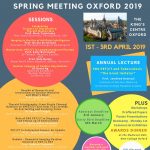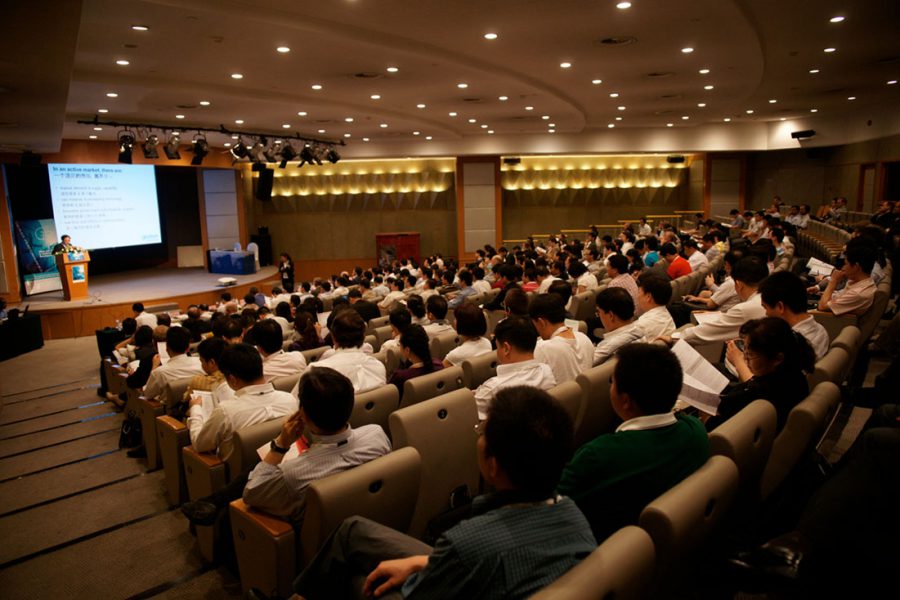

The 2nd International Medical Olympicus Contest
We are pleased to inform you that the 2nd International Medical Olympicus Contest, which was held on 18-20 October 2013 in Thessaloniki was a great success. There were many participants, as one can see from the attached photos, from more than 20 countries around the world. About 40 papers were selected for oral presentation among submitted papers, twice this number. All papers had to be original and of social interest.
Another innovation of the Contests is that the Organizing Committee poses questions for every paper accepted and the replies of the authors, along with an extended abstract of their paper(s), are published in the Archives Book distributed to all participants. All oral presentations may be published, after the Contest, as full papers in a special supplement issue, if the authors wish to do so.
As in all Contests there were no posters, round tables or free lectures. As it is customary, there was only one prototype lecture before the opening ceremony.
The 3 high prizes were awarded to papers referring as follows:
a) To a paper from USA, which showed evidence of diagnosing glioblastoma from a serum examination by N. Maounis.
b) A paper from Australia by Tom Karagiannis, who identified in olive oil a new factor able to prevent the growth of cancer and
c) a paper from Democritus Centre, Greece by P. Alexiou, which showed evidence of making leukemia cancer cells more sensitive to anticancer drugs. As the President of the Medical Olympicus Association noted: The fact that a paper is selected for oral presentation, is per se a distinction for the authors. Prizes for every specialty and distinctions were also awarded.
The participants had the chance to listen and participate in discussions that covered a broad field of original medical knowledge. This was a new experience for the audience who was able to communicate with colleagues from various medical specialties and express interesting thoughts and views. After the Meeting was over, many colleagues communicated with us with complimentary words about this Meeting. We wish that the Contests are creative, practical and pleasant.
The scientific event lasted only 2 days so as to present the best papers possible and also not to keep the participants for long, away from their usual duties at home.
An interesting excursion to the Royal Tombs of the Macedonian king Philip, and his son, Alexander the Great, took place the following morning after the scientific programme.
Figure. 1 (left). The President of the Organizing Committee of the 2nd Contest, Prof. emer. Philip Grammaticos (left) and Prof. Helmut Sinzinger (right) Figure 2 (right). From the morning session on Saturday 19-10-2013: From right: Prof. emer. Gurupad Bandopadhyaya, Dr. Giagkos Lavranos and Prof. Eleftherios Giannoulis.
Photos: (Left): The President of the Organizing Committee of the 2nd Contest, Prof. emer. Philip Grammaticos and Prof. Helmut Sinzinger. Grammaticos (left) and Prof. Helmut Sinzinger (right)
(Right): From the morning session on Saturday 19-10-2013: From right: Prof. emer. Gurupad Bandopadhyaya, Dr. Giagkos Lavranos and Prof. Eleftherios Giannoulis.
Figure 5 (left). Prof. emer. Philip Grammaticos during his lecture on Neohippocratic Medicine. Figure 6 (right). From the evening session on Saturday 19-10-2013: From right, Prof. Barbara Palumbo, Prof. emer. Vasileios Kokkas and Prof. Tomoaki Yamamoto.
Photos: (Left): Prof. emer. Philip Grammaticos during his lecture on Neohippocratic Medicine.
(Right): From the evening session on Saturday 19-10-2013: From right: Prof. Barbara Palumbo, Prof. emer. Vasileios Kokkas and Prof. Tomoaki Yamamoto.
On September 12, 2014 Medical Olympicus Association organized a series of lectures devoted to Hippocrates, Neo-Hippocratic Medicine and also devoted to medical treatment applied in the Asclepieion of the island of Kos.
By the term “Neo-Hippocratic Medicine”, which was first introduced by Professor Nicolas Louros in Athens, we mean: useful medical observations evaluated or supported by recent medical research and literature. A well-known example of that is the observation of Hippocrates that when animals become sick, they rub their back on the bark of a specific willow tree for treatment. This observation was evaluated and supported by recent research and medical literature which proved that this specific tree produces the well-known salicylic acid used in making aspirin.
In ancient Asclepieia patients were first prepared psychologically and in order to respect their physicians while waiting for the treatment. Democritus who was a teacher of Hippocrates said to Hippocrates that the soul is liberated only by philosophy (suggesting that the soul must be prepared before any treatment is applied to the body) and that medicine only liberates or treats the body. In Asclepieia injuries were treated by ointments, surgical operations and cauterization. If no treatment was successful, then the case was called untreatable. Other treatments referred to psychological, ophthalmic, gynaecological diseases etc. Haemoptysis was treated by a mixture of the dust of the pine tree seeds with honey taken for three days. The first nurse in 1250 B.C., as mentioned by Homer in Iliad, was the “nice hands having–calliplokamos” Eucamide who was first nurse to king Nestor. The name Asclepios means the one who treats “non-harmonic health conditions”. Asclepios lived in 1250 B.C. which means that ancient medicine flourished at that time.
In photo no 1 you may see the Chairmen of the Meeting. In photos no 2 and 3 you may see colleagues attending the lecture of Prof. M. Myronidou and a musical break.


